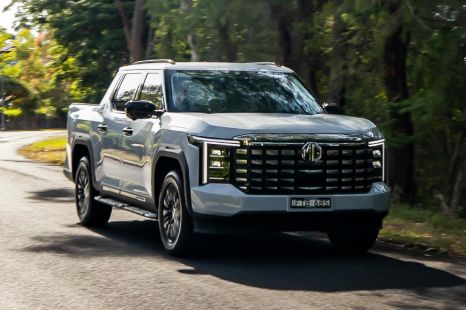

Matt Campbell
2026 MG U9 review
4 Hours Ago
A car is the ultimate mobile device, and this presents tech companies with an alluring opportunity to be more involved in the automotive space.

Contributor
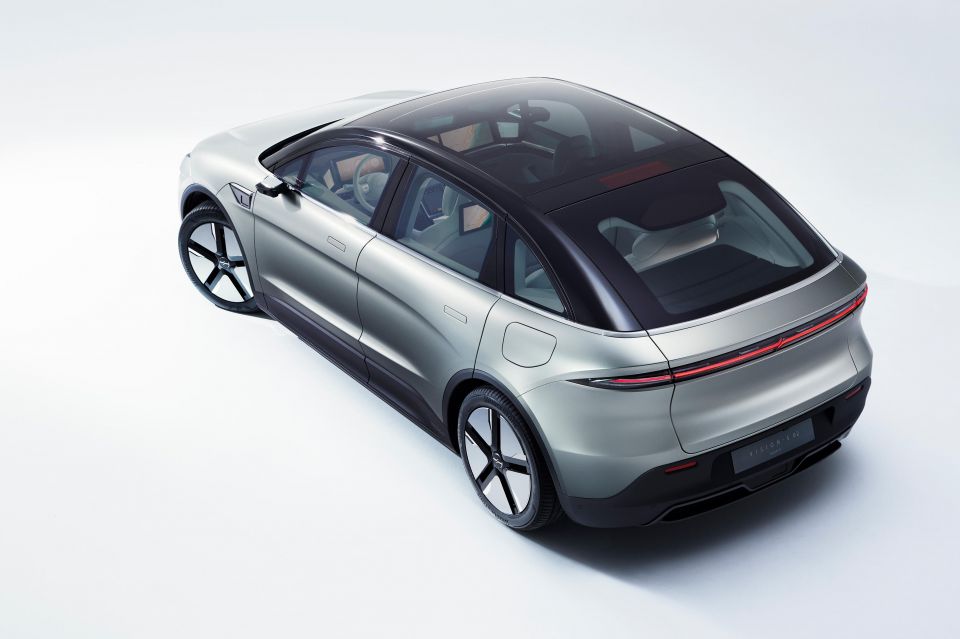

Contributor
Cars are the next frontier for digitalisation, and act as an important tool that is gradually being transformed into a set of rolling computers on wheels.
The advent of everything from connected cars that feature over-the-air updates and advanced infotainment systems, to electrification and increasingly sophisticated advanced driver assistance systems (ADAS) and autonomous driving features means that, much like a phone or laptop, software now plays a tightly integrated role with the mechanical hardware of a car.
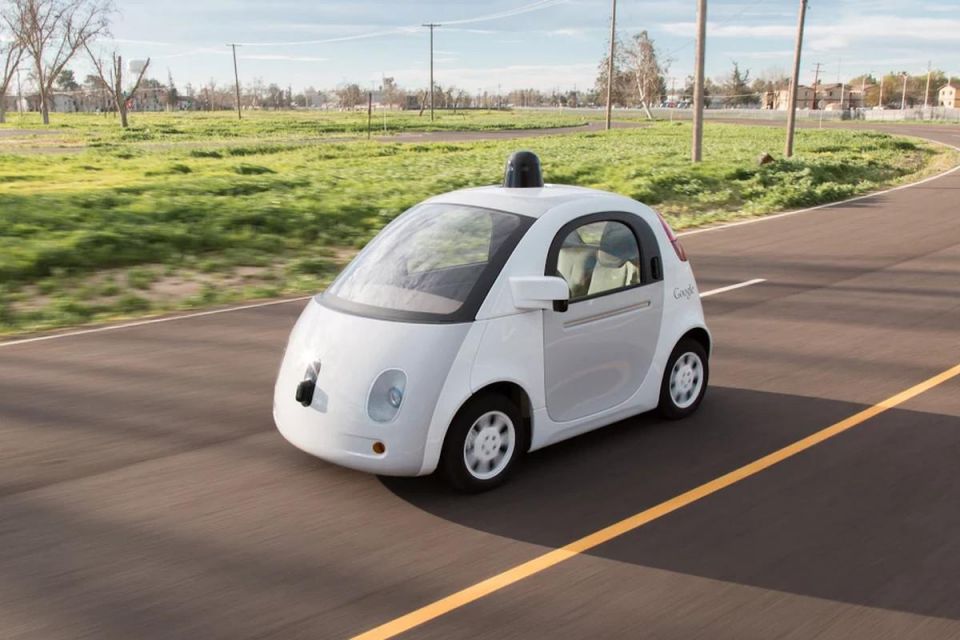
Good software can now be a critical variable in determining everything from how far a car travels, how safe the car is and how the car drives, and therefore can no longer be considered as an afterthought.
This presents an ideal opportunity for companies traditionally considered to be in the technology sector to disrupt the automotive industry, and transform the car into the ultimate digital device.
While there are plenty of tech-focused automotive start-ups, including Tesla, Lucid, Rivian and Canoo, let’s take a key look at companies that weren’t originally established with a view to building cars.
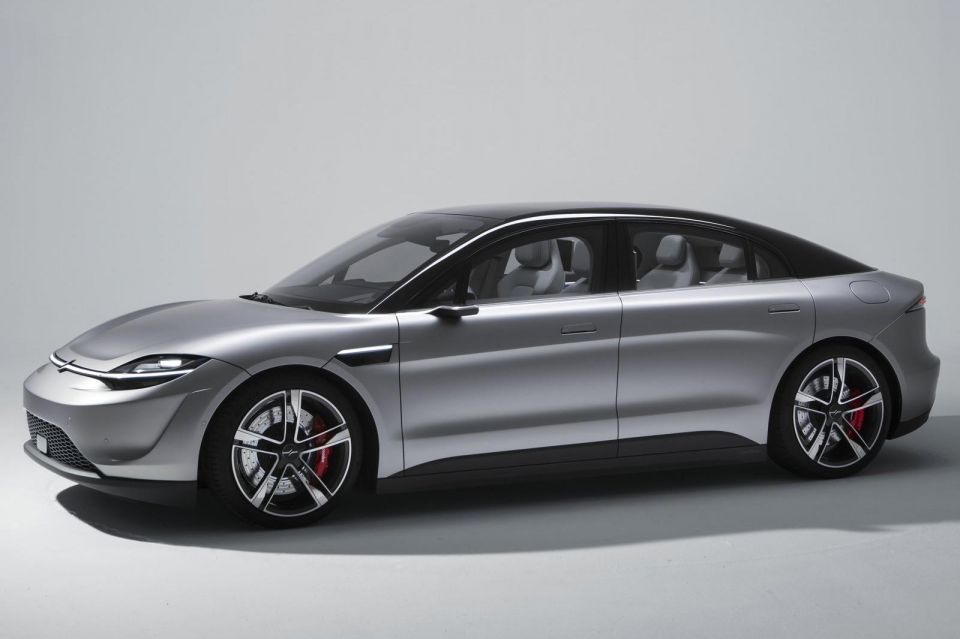
Sony is a Japanese tech company famous for making everything from TVs, Hi-Fi systems and PlayStations to gadgets such as the Walkman, and is arguably one of the tech companies with the most concrete plans to move into the automotive industry.
Originally revealed at CES 2020, the brand’s Vision-S sedan is a concept electric vehicle that looks remarkably production ready, and at its launch was billed as demonstrating Sony’s ideas for the future of automotive technology.
This includes everything from the displays, software and user interface for the full-width, dashboard-spanning infotainment system, to its proprietary ‘360° Reality’ audio system, as well as the imaging sensors and cameras for the car’s touted Level 4 (with future OTA updates) autonomous driving system.
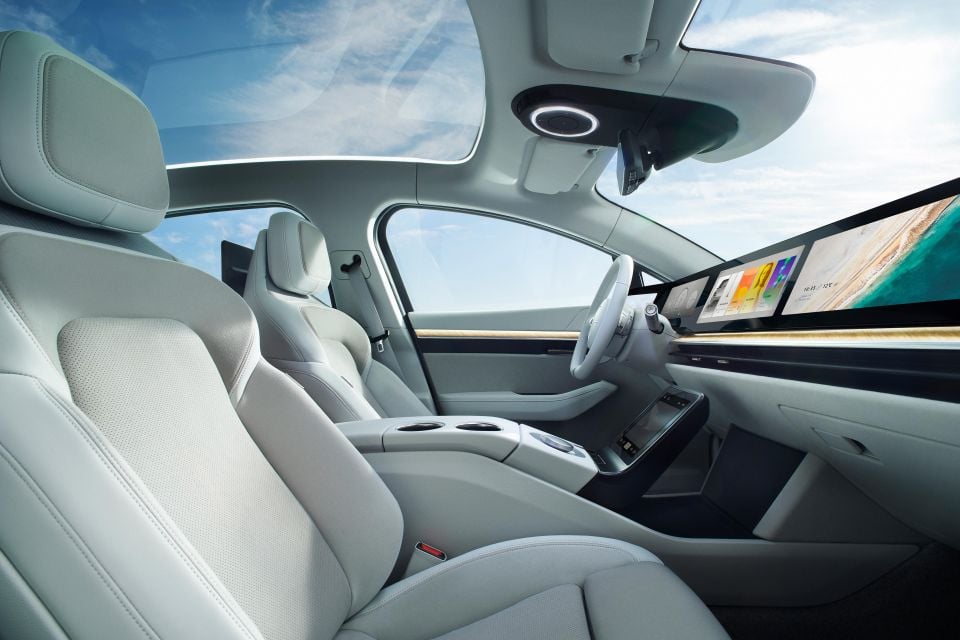
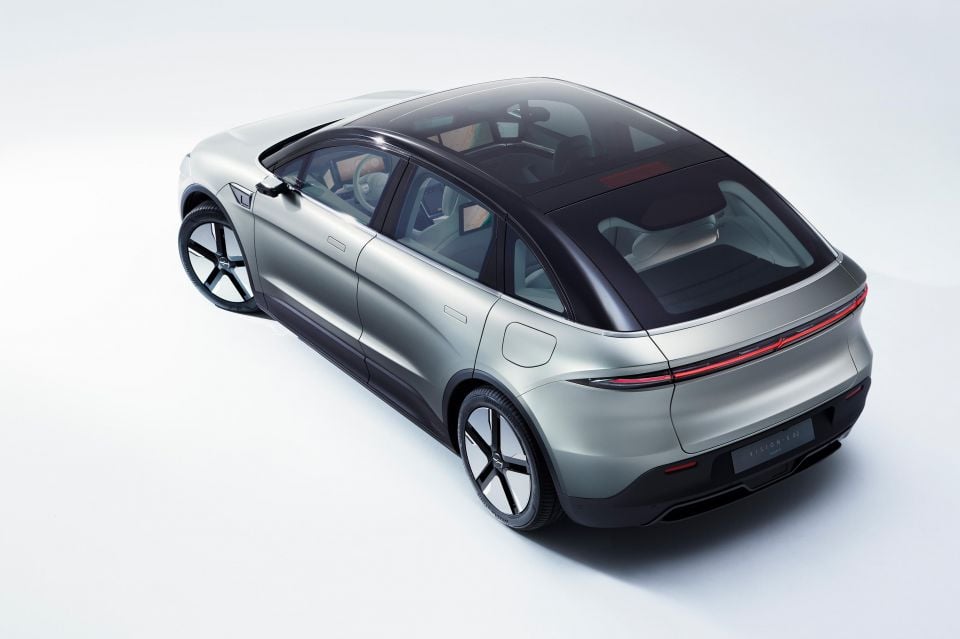
More recently, Sony revealed a seven-seat SUV counterpart to the sedan during CES 2022 called the Vision-S 02 concept, making use of the same design language.
Perhaps the greatest hints that Sony is working towards production versions of these cars is the fact that the brand has already built a working prototype of the sedan making use of a chassis developed by well-known supplier Magna, and the formation of an operating company, Sony Mobility Inc., dedicated to exploring entry into the EV market.
The firm currently claims an impressive target specification for the Vision-S sedan, with dual 200kW motors providing all-wheel-drive, a claimed 0-100 km/h time of 4.8 seconds and a length of 4,895mm placing it firmly in the mid-size executive segment alongside cars such as the Mercedes-Benz E-Class and BMW 5 Series.
MORE: Inside the Suppliers: Magna MORE: Sony reaffirms automotive plans with Vision-S 02 SUV
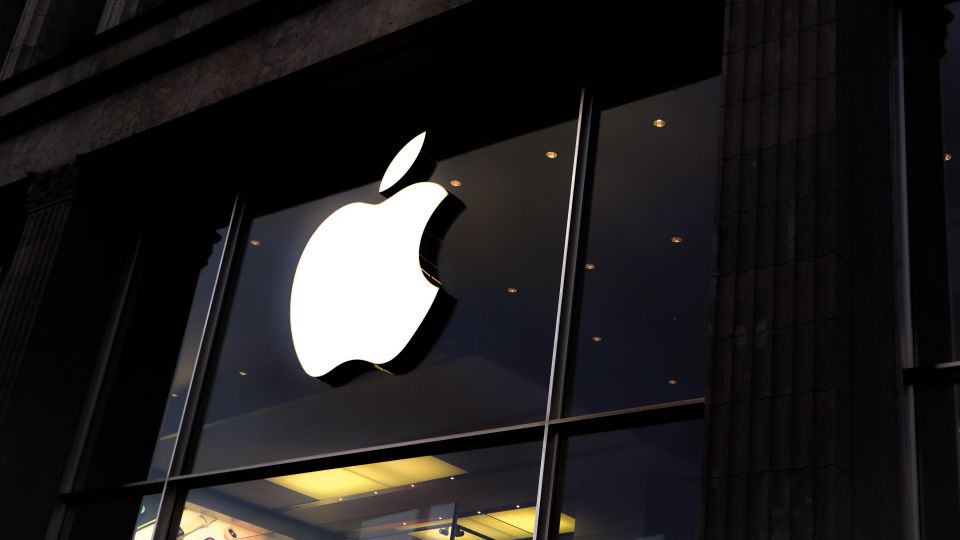
Efforts by the world’s largest company to develop and produce a car have gained an almost mythical status under the ‘Project Titan’ banner. Apple has confirmed it’s testing autonomous driving technologies and has a fleet of suitably modified Lexus SUVs to do so, but has not directly confirmed any efforts to design and mass-produce a car.
Apple’s secretive car development efforts under Project Titan are rumoured to have begun in 2014 with over 1000 engineers focused on EV development in secret, with residents near the testing facilities even complaining of loud, ‘motor-like’ noises.
According to various media outlets, the focus of Project Titan since then has changed tack several times, shifting from an actual car, to a more focused approach on autonomous driving technologies, to being refocused again on a completely autonomous car equipped without any steering wheels or pedals, earmarked for a 2025 launch.
Other rumours have suggested that Apple has been in talks with a range of suppliers and automotive companies, including everyone from Toyota, Nissan, Hyundai and Magna to build a future Apple-branded vehicle, and has hired talent from across the industry, including employees from Tesla, BMW, Mercedes, VW, General Motors and Ford.
MORE: Apple looking to South Korean suppliers for its car – report
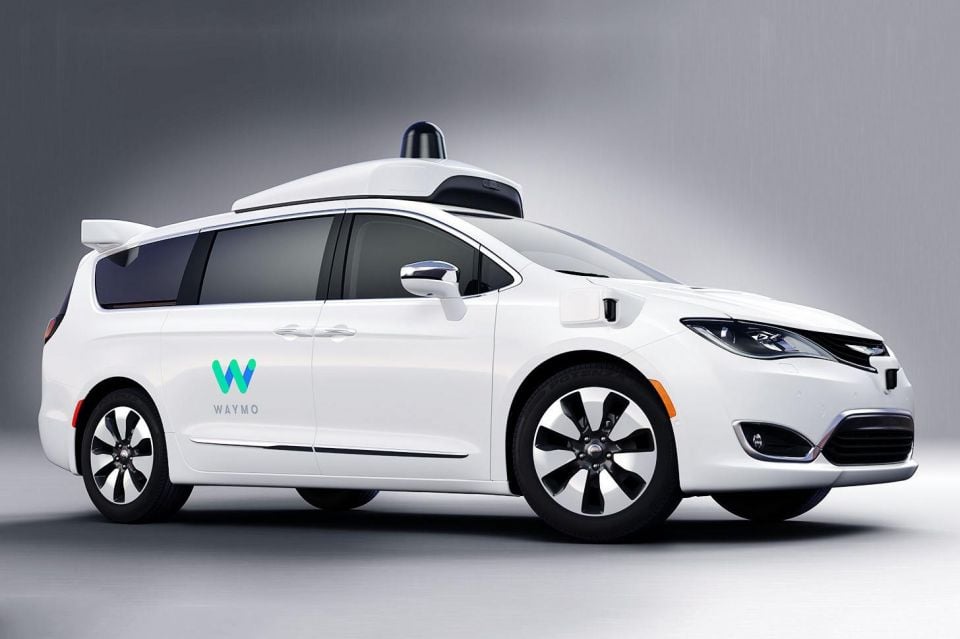
Google is well-known for its self-driving car efforts, and this project began in earnest in 2009, with the company launching a fleet of suitably equipped Toyota Prius vehicles. These efforts were separated from Google and consolidated into a newly formed, independent company, Waymo, under the Alphabet banner in 2017.
Waymo has gradually progressed its autonomous car technology, and the latest ‘fifth-generation’ version (known as the Waymo Driver) features a suite of lidar, radar and camera sensors coupled with ‘server-grade’ CPUs and GPUs.
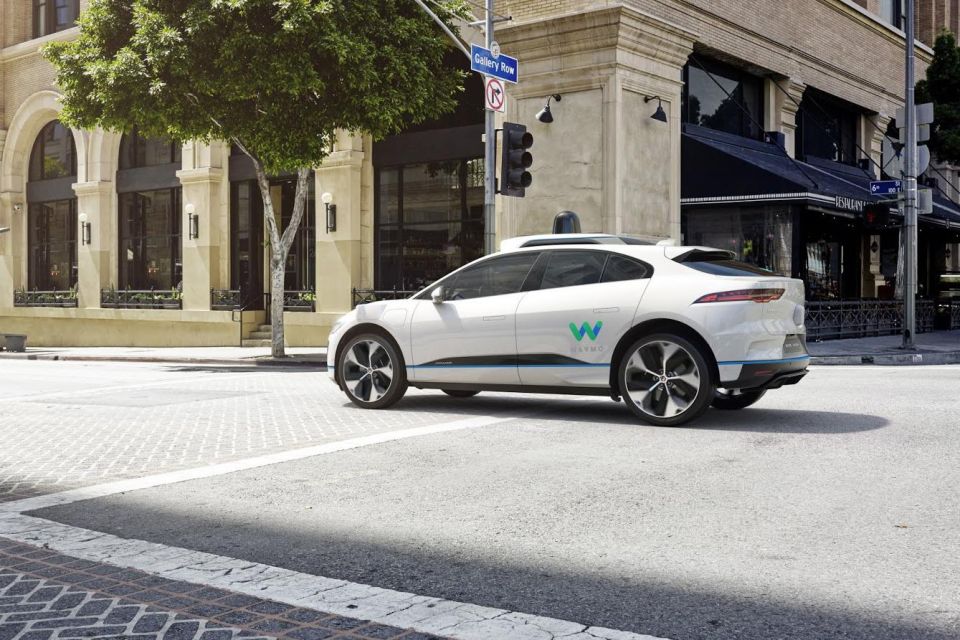
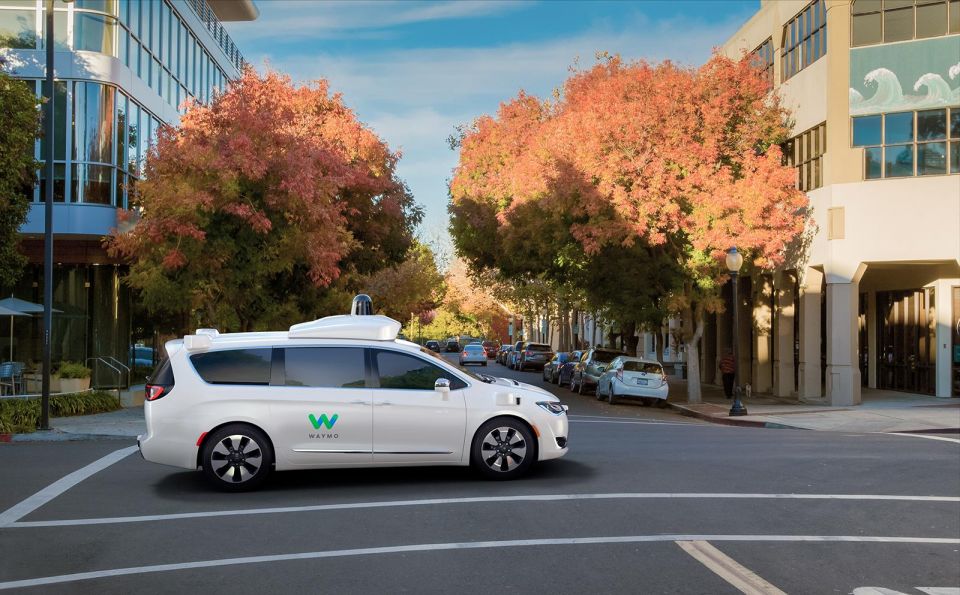
The company is currently testing its technology as part of an autonomous ride-hailing service known as Waymo One in San Francisco and metropolitan Phoenix, Arizona, with the Waymo Driver being equipped on a combination of modified Chrysler Pacifica Hybrid people movers and Jaguar I-Pace electric SUVs.
Waymo is also testing Waymo Via, an autonomous long-haul trucking service, with trucks equipped with the Waymo Driver technology being tested as part of trial delivery programs in the US states of New Mexico and Texas.
The company has plans to further expand its Waymo One self-driving rideshare service to other locations beyond Phoenix and San Francisco, having announced plans in 2018 to buy up to 20,000 Jaguar I-Pace SUVs and 62,000 Chrysler Pacifica people movers. As of 2021, however, Waymo’s current fleet remains far smaller at just over 600 vehicles.
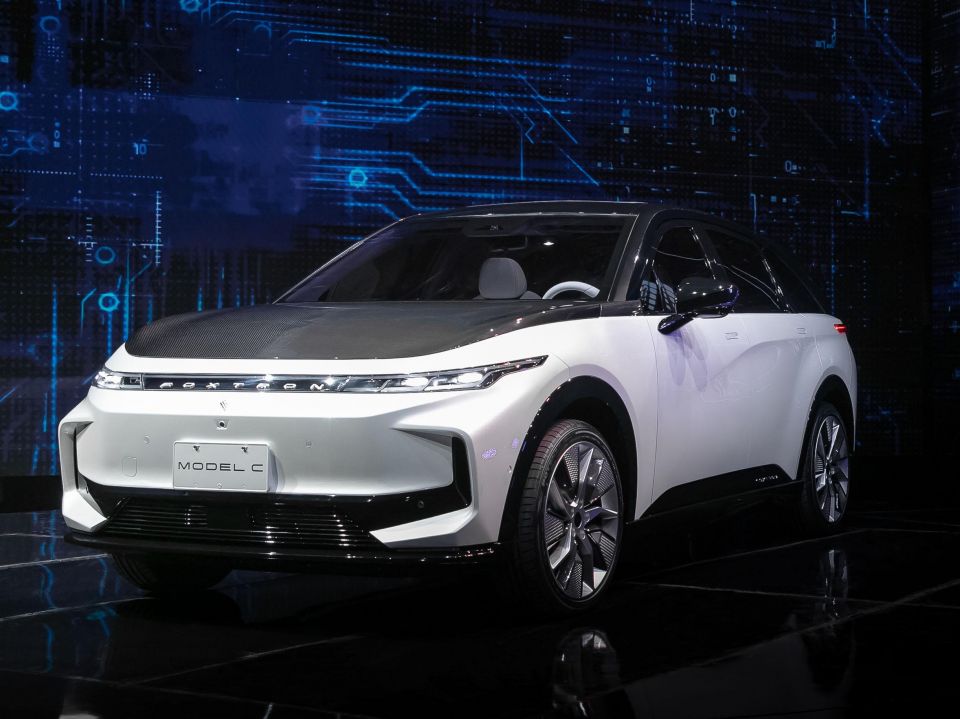
Foxconn is a Taiwanese company arguably most famous for being Apple’s supplier of choice to manufacture the iPhone. However, the contract manufacturer has substantial expertise in manufacturing numerous other gadgets and electronic devices, and has recently decided to enter into the EV space under its own ‘Foxtron’ marque.
As part of these efforts, the company revealed three EV concepts last October. The Model C crossover is a Mitsubishi Outlander-sized seven-seater SUV measuring 4.64m long, with Foxconn claiming the car can accelerate from 0-100 km/h in 3.8 seconds, with a range of 700km due to a low drag coefficient of 0.27.
The brand also revealed the Tesla Model S-rivalling Foxtron Model E sedan, claimed to offer a range of 750 km with a 0-100 km/h time of 2.8 seconds, and the Model T bus, offering a range of 400 km with a top speed of 120 km/h.
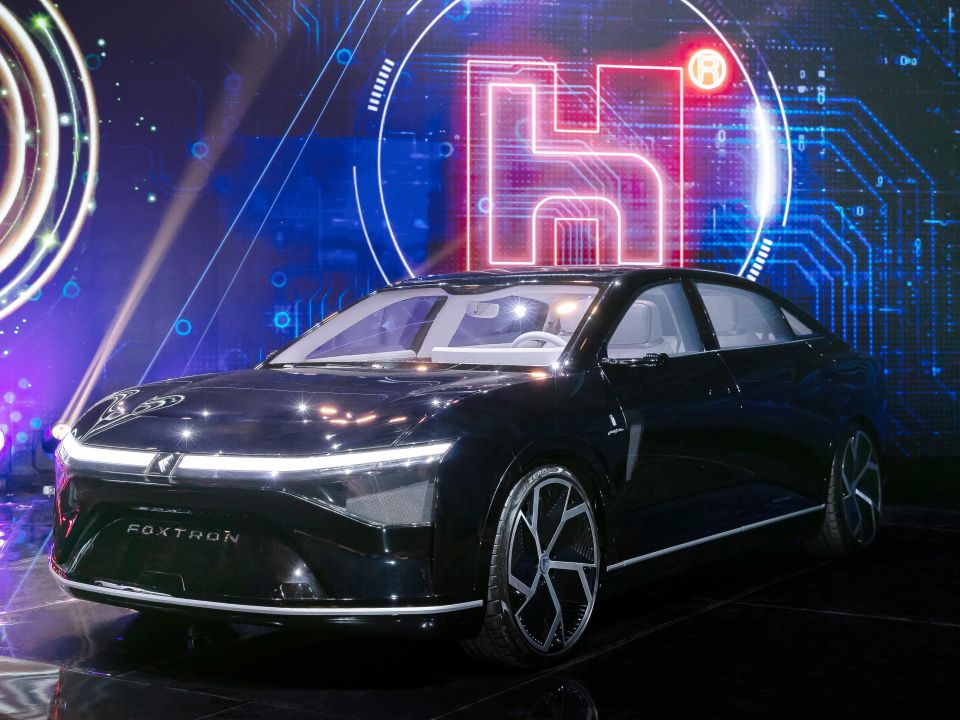
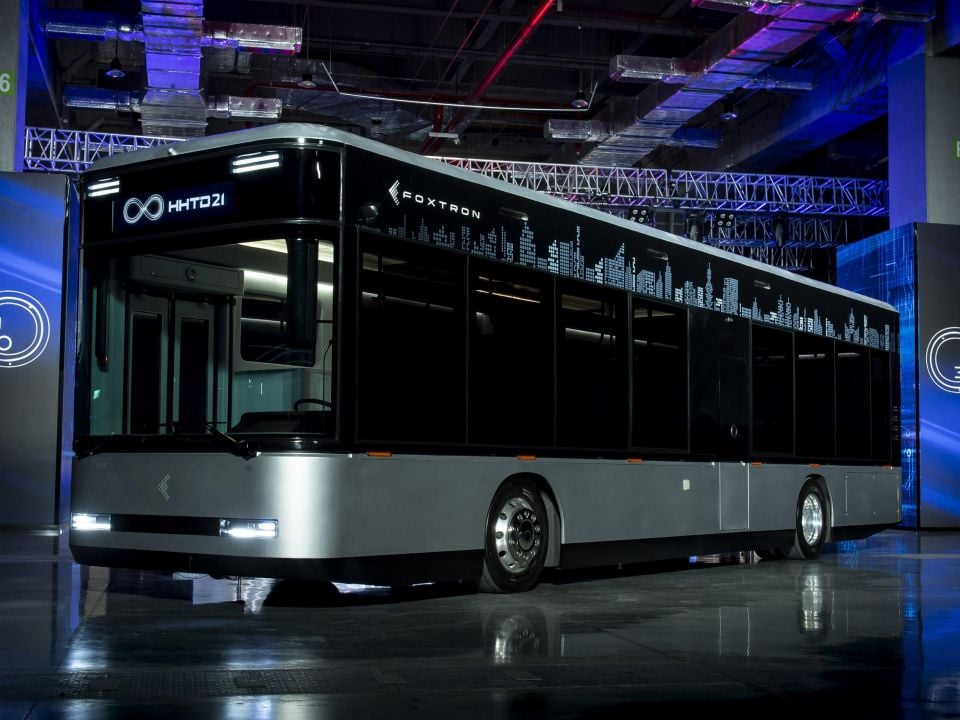
The Foxtron brand is but one part of a multi-pronged approach to EVs by the Taiwanese contract manufacturer. Foxconn has also developed a scalable ‘open’ EV architecture that it’s willing to license to other carmakers, and will also build EVs for startup Fisker.
Late last year, the company also bought start-up Lordstown Motors’ factory in Ohio and will produce the company’s Endurance electric pick-up truck.
MORE: Apple supplier Foxconn to build Fisker cars MORE: iPhone manufacturer unveils Foxtron Model C, Model E and Model T EVs
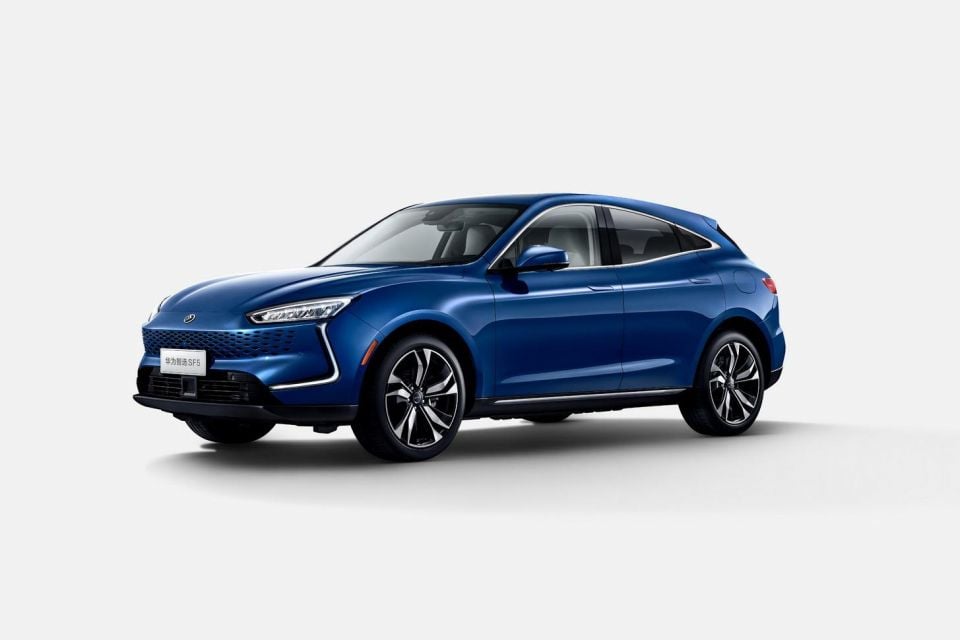
Huawei has recently been mired in controversy over potential security issues and backdoors to its 5G technology, and is also well-known for its extensive lineup of smartphones.
In China, the company has also expanded into the EV space, unveiling the SF5 SUV. Jointly developed with Chinese carmaker Seres and marketed in Huawei stores across the country, the SF5 claims to use a range extender powertrain incorporating two electric motors paired with a 1.5-litre four-cylinder petrol engine.
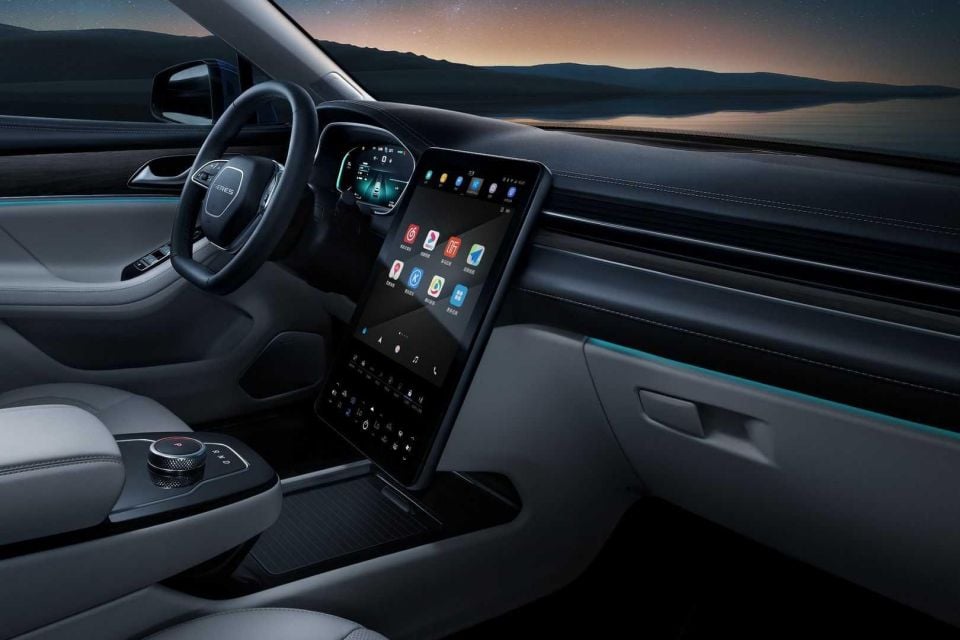
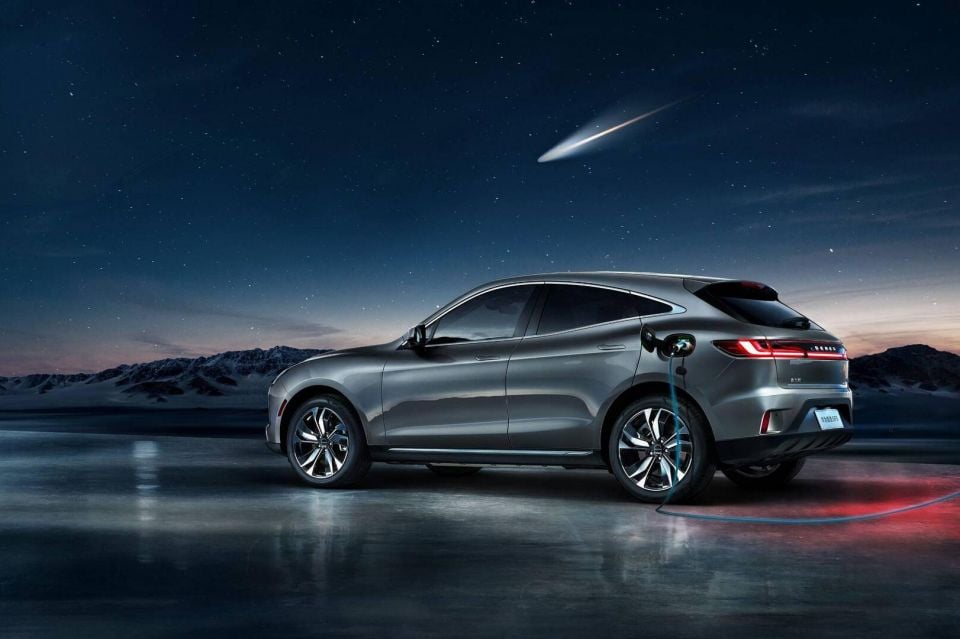
Overall, the Chinese brand claims an electric range of 180km on the lenient NEDC testing cycle, a total range of ‘more than 1000 km’ and a 0-100 km/h time of 4.7 seconds.
On the inside, Huawei claims that it has equipped the SF5 crossover with an 11-speaker audio system offering ‘opera-like’ acoustics and sound quality.
It is currently unknown whether Huawei has any intention to export this vehicle outside of mainland China.
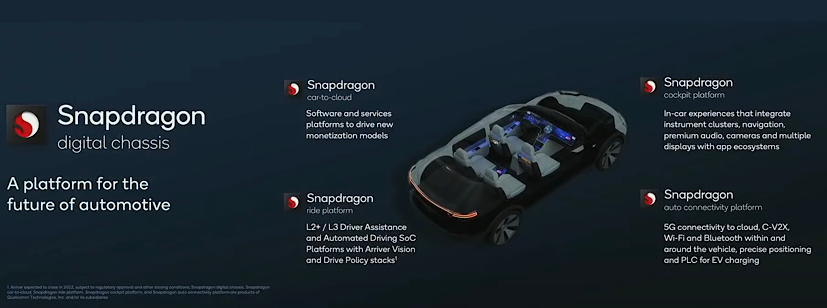
There are numerous other technology companies who have not announced any plans to launch a complete car, but nevertheless have revealed various components that can be used by other carmakers.
Qualcomm, Intel (through its Mobileye subsidiary) and Nvidia are all hardware CPU and GPU chip manufacturers that produce components suitable for powering the latest driver assistance and infotainment systems. The upcoming Polestar 3 SUV, for example, uses Qualcomm’s Snapdragon Digital Chassis and Digital Cockpit technologies based around the Snapdragon 820 SoC (system on chip), formerly used to power various smartphones.
Samsung (distinct from Renault-Samsung, which is a near wholly-owned subsidiary of the French marque) and LG have both made substantial investments in the development of battery and associated powertrain technologies for EVs. LG Chem supplies batteries for numerous EVs including the Mercedes-Benz EQC, whilst Samsung SDI will be the battery supplier for Rivian’s lineup of vehicles.


Matt Campbell
4 Hours Ago
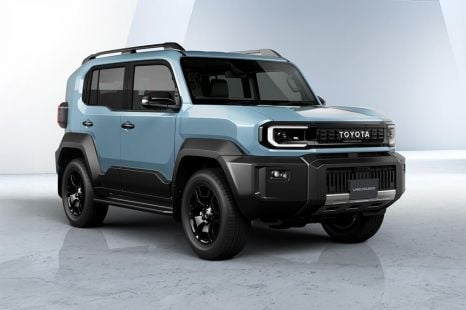

William Stopford
20 Hours Ago
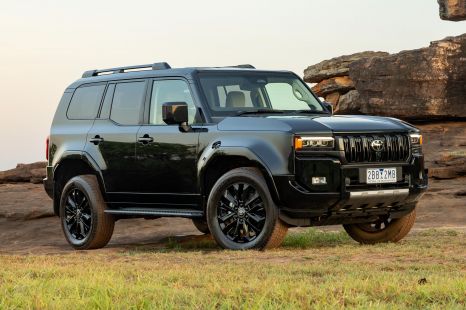

Josh Nevett
21 Hours Ago
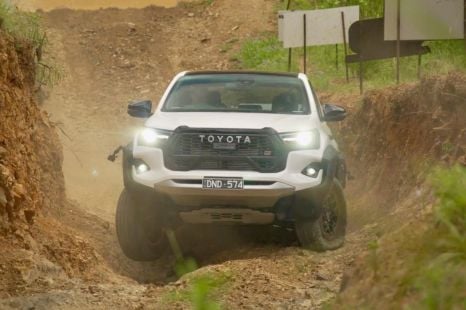

Ben Zachariah
2 Days Ago
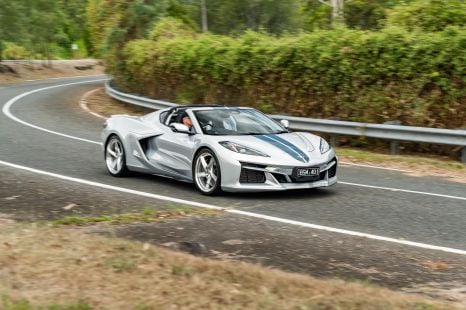

CarExpert.com.au
2 Days Ago
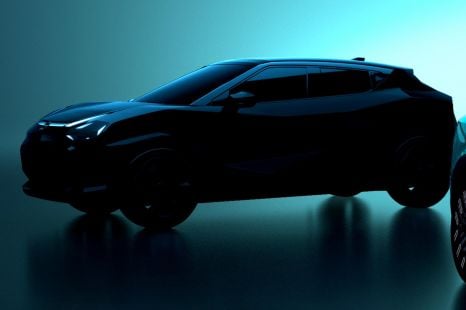

Damion Smy
2 Days Ago